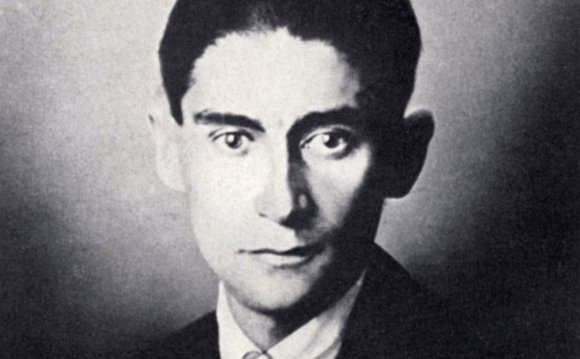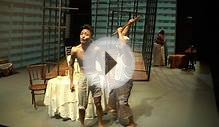
From Jason Baker's Introduction into Metamorphosis also Tales
Franz Kafka's fiction doesn't sound right. Kafka ended up being without doubt alert to the resulting awkwardness, and perhaps he hoped to cover from future visitors as he requested their confidant Max Brod to destroy all their unpublished manuscripts upon their death. Kafka's writing is on one-hand particular and realistic, as well as on others incomprehensible. His literary puzzles resemble the unreal landscapes and structures of M. C. Escher's drawings and lithographs. Actually, Escher's imagery provides a useful method to visualize Kafka's literature. Just as if leading the reader up-and-down unlimited stairways of logic, Kafka targets numerous dualities at once, that crisscross in three dimensions. As opposed to a linear argument, Kafka writes a spiral one, which makes visitors dizzy, or even seasick. Interestingly, metamorphosis ended up being certainly one of Escher's favorite topics, and three of his most famous woodcuts share this name with Kafka's novella. Metamorphosis, Anthony Thorlby argues, is the motif implicit in most Kafka's prose ("Kafka's Narrative: A Matter of Form"; see "For Further viewing"). Kafka's content is in some way incongruous with his type, and for that reason, the language must either go through a metamorphosis it self to allow for his pen, or perish-and sometimes it can both. At its best, Kafka's prose is re-formed into a fresh mode of signification; at its worst, their words are deformed, exhausted, meaningless. In trying to match his impossible circumstances in to the feeble automobile of language, Kafka knowingly embarks on a failed enterprise. He attempts to show the inexpressible.
The Metamorphosis of their writing, Kafka's real achievement, takes visitors to someplace at the same time familiar and unknown. Intrigued by this immediacy, experts have actually celebrated Kafka for their "universality." This flattery overreaches perhaps, nevertheless the term "universal" had not been picked unintentionally. Kafka's fiction examines a universe largely unexplored in literature preceding him, one full of implications that venture to the remote parts of man psychology. It really is a universe with different guidelines compared to those regulating our truth. And there's no map.
But Kafka's world none the less resonates deeply with whom we are and whom we've become. Early visitors which hailed Kafka's universality had never seen their life in books, as well as had just dimly acknowledged the "Kafkaesque" as an unnamed thing. Kafka was among the first to describe bourgeois labor as well as its degrading affect the soul. In his fable "Poseidon, " Kafka also portrays the god regarding the ocean as consumed with tiresome, never-ending paperwork. Kafka brings to mind a vocabulary of images-an unlimited path of meaningless types to-be filled out, a death device to rival Poe's pendulum, a person wearing a bowler hat, a gigantic insect. Because of interpretations like Orson Welles's film type of The test, Kafka's universe has broadened to include rows of workplace desks, oppressive light, and snapping typewriters. Kafka comprehended the trajectory of bureaucracy, and his literary works predicts the nightmarish business globe we are now living in today.
Kafka's fiction, though cement in its particulars, proposes an array of interpretive opportunities. "The Metamorphosis" alone features prompted Catholics to argue a case of transubstantiation, Freudians to extrapolate Gregor's castration by their daddy, and Marxists to infer the alienation of guy in society. Kafka's information vacillate between realism and allegory-a narrative design best called parabolic. But unlike a conventional parable with an easy ethical, Kafka's parables resist effective understanding.
This amount has actually as its parentheses Kafka's two best-known parables, "a note through the Emperor" and "prior to the Law." They both illustrate Kafka's near-nauseating capability to describe limitless regress. "A Message through the Emperor" monitors any fast explanation featuring its quick but damaging term "or so they really say" within the orifice line, which calls into question the tale's validity, like the account is reported. In addition, the "you, " the next person, has actually imagined the whole thing up. This second piece of information not merely contradicts the very first, it turns the parable on its head-why would somebody, specifically "you, " which appears to reference your reader, dream up some thing so needlessly complicated, particularly when it fears some thing as momentous as an emperor's message? This "you" can mean Kafka himself-a publisher which saw an infinite corkscrew of hurdles spiraling before him, but felt compelled to record their own deliberate steps. "prior to the Law" in addition features an Inferno-like layering and once more pits an unsophisticated character against an implacable system, unknowable in its complexity. Although the man from country never recognizes it, his beat by the Law, capital L, is a foregone summary. Regulations's only function is always to shut out the guy and, in so doing, to destroy him.
Kafka's parables tend to be epitomes of his larger works ("ahead of the Law, " though published first alone, is really part of The test). Their particular shortness only concentrates your reader's perplexity. Robert Wenniger promises that Kafka's daddy engendered in Kafka a disparity between language and meaning. In fact, silence was Kafka's typical a reaction to his dad. By writing incomprehensible texts, Wenniger contends, Kafka assumes the role associated with father, an authorial place within the audience (Wenniger, "Sounding out of the Silence of Gregor Samsa: Kafka's Rhetoric of Dyscommunication"). This leaves your reader confused and vainly seeking definition. Definitely, Kafka shares this privilege with many of the world's great article writers, whoever work is often a challenge to interpret. In "On Parables" Kafka writes, "Parables truly attempted to state merely the incomprehensible is incomprehensible, and we also realize already" (the whole tales, 1971, p. 457).
In Kafka's formulation, the parable is employed because of the sage to gesture toward one thing larger than, or invisible to, himself. The necessity to get this to gesture is inborn. Nevertheless the parable dissolves the moment we comprehend it; the motion wouldn't be beyond language if it could be defined. We lose in parable the moment we pin things down to an accessible meaning. Realizing it is impractical to discuss or translate Kafka without dropping in parable is the first and perhaps just step we can just take.
Kafka's parables not only falter once we interpret them, they truly are impossible to put into practice. If everything, their parables guarantee the failure not just of their characters, but of visitors wishing to abstract any classes relevant with their very own lives. Failure, it seems, is Kafka's real subject. To get at this conundrum, we should explore discretely the dichotomies Kafka himself conflates-dreams versus reality, idleness versus work, vermin versus human, child versus adult. For Kafka, each of these antagonistic sets signifies an authorial relationship. You are able to lump the lowly-dreams, idleness, vermin, child-on one part, together with expert figures-reality, work, real human, adult-on one other. But ultimately this equation is simply too easy, for Kafka himself doesn't pick a side. He calls both sides into concern and finds them similarly detestable. Unbraiding Kafka's authorial connections could be the best way to discover why.
RELATED VIDEO












